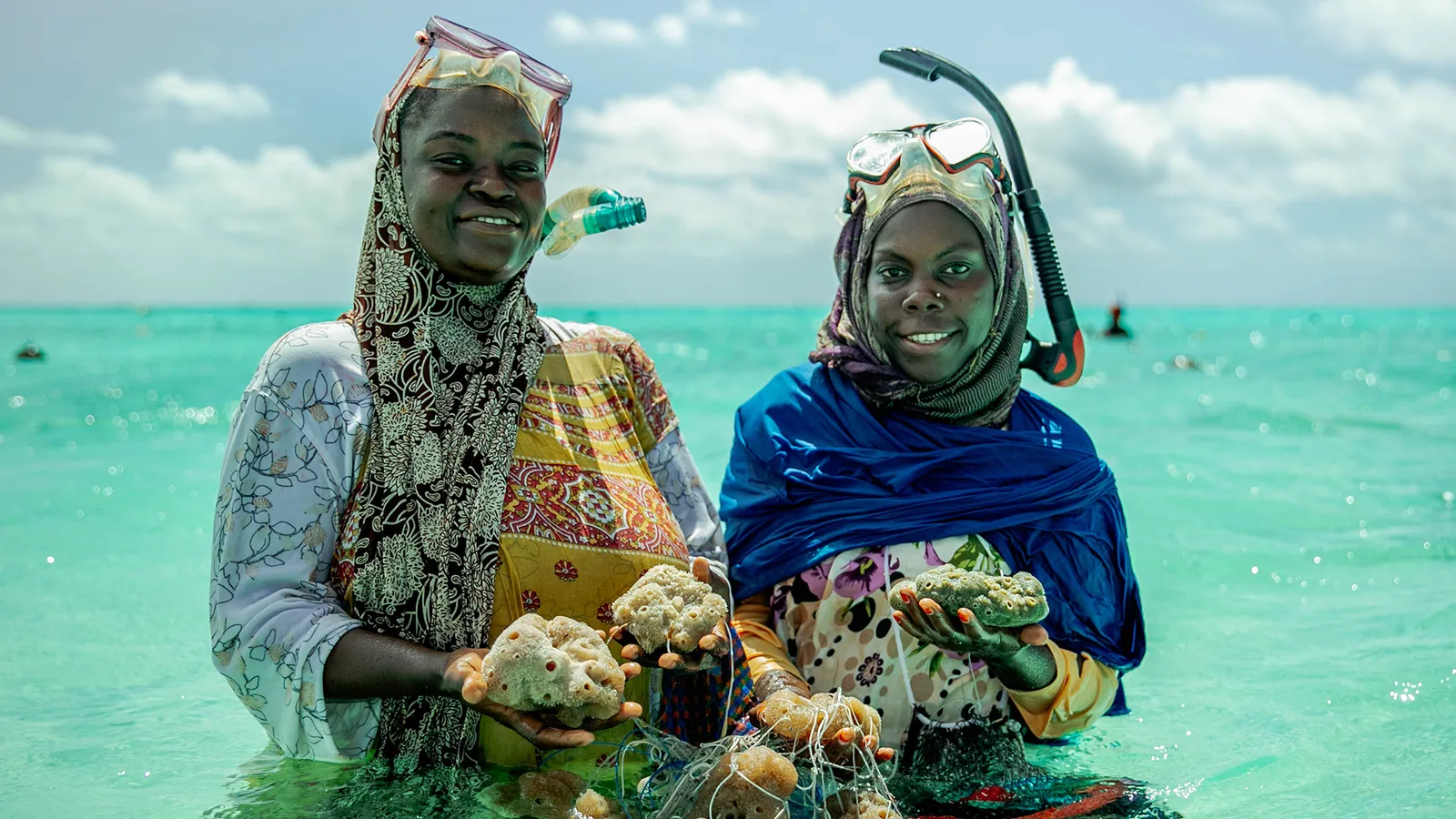Rajabu dropped out of school when she was 17 because her mother could no longer afford to pay for her studies, crushing her dream of becoming a doctor. When her husband left her after nine years, Rajabu refused to be defined by her circumstances. She started seaweed farming to support her two children.
But she barely earned enough to support them – a mere 70,000 Tanzanian shillings (£22/$28) each month.
In 2020, Rajabu approached Marine Cultures to explain her difficult situation and seek a job. She was swiftly taken on board and started earning a higher income.
“It is a tough job, but I enjoy doing it and it pays quite well,” she says. She now earns a monthly salary of 250,000 Tanzanian shillings (£80/$100).
“I earn a stable monthly income, enough to meet my family’s needs,” she says.
Sea sponges, which are technically animals but grow, reproduce and survive like plants, are comprised of a shell-like layer, riddled with tiny pores which allows water to flow in and out. The marine creatures are thought to have existed for over 600 million years and may well have been Earth’s first animal. Scientists have identified over 15,000 species globally.

Until the early 2000s, the seaweed industry was a backbone of Zanzibar’s local economy, employing 20,000 women farmers, lifting their standard of living and social status. But the seaweed industry has been battered by rising temperatures, says Vaterlaus, threatening the livelihoods of thousands of farmers in Zanzibar.
A 2021 study by researchers at the University of York in the UK found seaweed yields and quality had dropped drastically in the area due to rising temperatures, stronger winds and erratic rainfall.




0 Comments